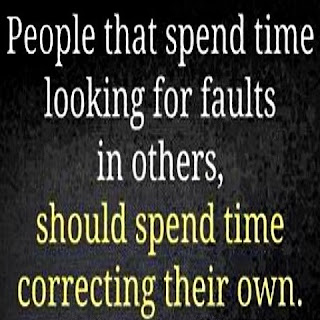Way taghimo, aja da masipanhilabot. There is a current trend of sloth which is happening around. This
mainly focuses on people who are making themselves become Peeping Toms on
social media. Some call them Facebook Police. But whatever the terminologies may
be, they are simply targeting for pure GOSSIP. They fish information out from
the lives of others and most of the time find the gaps on the lives of others
for them to gloat.
For those who
are unaware, a peeping Tom is a title used to refer to someone who gains
pleasure from watching someone else. The term is another way of saying a
voyeur, which Merriam-Webster defines as a “prying observer” who gains
stimulation and/or pleasure from watching others.
Seeing is
pleasure — especially from a distance. There is something alluring about
watching Snapchat or Instagram stories, viral video clips and even reality
television. We reap the benefits of having our senses stimulated by human life
but hold no personal investment in what we are watching. Oftentimes we do it to
escape the boredom or discomfort of a situation. From afar, we indulge in the
lives of others and measure ourselves up to one another in the process (Sontag,
2016).
Most of the
time, these persons are NOT really busy. They just seem busy doing something.
But they are actually not productive. They spend so much time scrolling social
media sites and prying into the lives of others forgetting that they have their
own lives to consider.
Why do we snoop
on others on social media? Scientists have a lot of theories. One is related to
voyeurism in general: snooping gives us power. According to a 2014 study on
being a voyeur on social media, checking out someone's feed allows the lurker
to "learn from others by watching them," without "giv[ing]
anything out in return," upsetting the balance of power.
Power. There are
those who hunger for it. There are those who feel powerful when they can see
mistakes of others displayed on these sites. Some even redeem their feigned
power over others by simply posting comments to say: I am still powerful. Yes,
there are many who are still do not understand their SICK side.
How much power
do you want? Is it not enough to have power over your OWN life? For a start,
use your power by making yourself productive. Do something! Create.
Make yourself
beautiful! Nagkayaot na kaw lamang! Take time to bathe!




